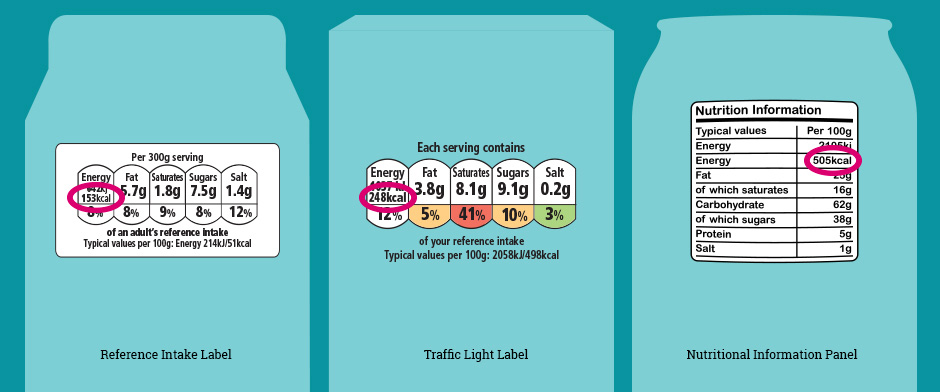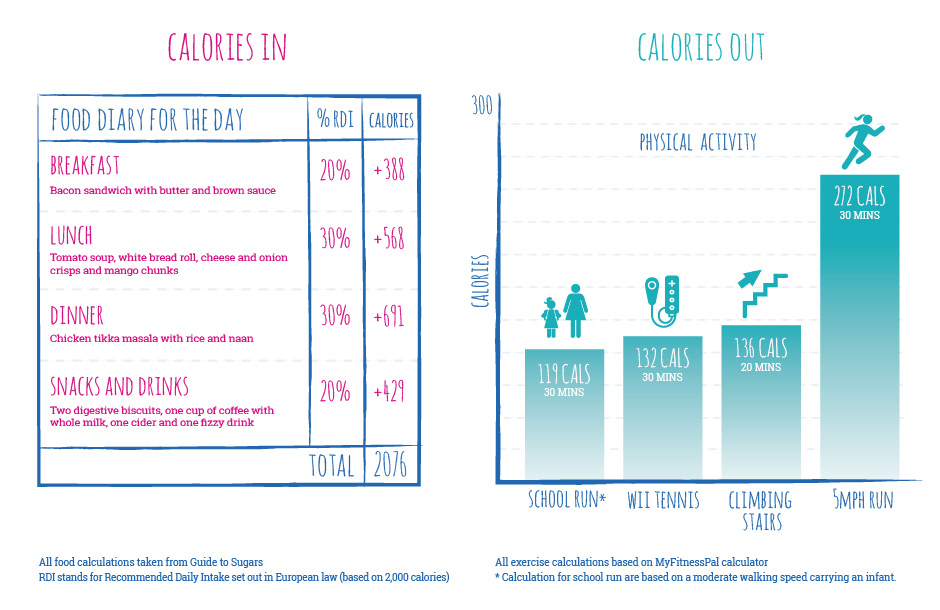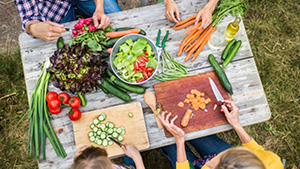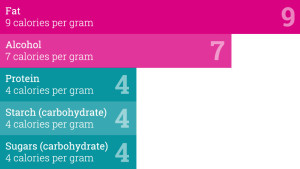UNDERSTANDING CALORIES
A number of parents we‘ve spoken to said their knowledge on calories and the role they can play within their diet and lifestyles was relatively low. So to help, we have explored what the term “calorie” means and why it can be important when making diet and lifestyle choices.
What is a calorie?
Calories are essentially a measure of the amount of energy in food and drinks. When we eat or drink, we are putting energy (or calories) into our body. Different food and drinks provide different amounts of energy. This information can be found on ‘front of pack’ food and drink labels as well as within the nutritional information panel, examples below: (63)

How does the body use calories?
Our bodies use up energy (calories) as we move or exercise. To maintain a healthy and stable weight, the energy we put into our bodies must equal the amount of energy we use up. This is called energy balance.
Every time we eat or drink, we take in more energy (calories). Every time we exercise – be it a stroll to the shops, swimming with the kids, or walking up the stairs – we use up energy and burn calories. Therefore, the more exercise we do, the more calories we burn. This is also true of how hard you exercise, if you walk to the shops faster or carry heavier items, you will burn more calories.
To understand how this works in practice we’ve explored how your calorie intake could be spread throughout the day to maintain a healthy weight (based on the UK government’s recommendations) and the types of activities you could do to burn off some of these calories.

If you want to explore meal ideas for you and your family that fall within daily calorie recommendations visit our recipes page.
How many calories should I consume?
As a general guide, an average man needs 2,500 calories a day to maintain a healthy weight and a woman needs 2,000 calories (53). How many calories you can consume does depends on varying factors though, including how many calories you burn in a typical working day, your body size or your age.
How can I track calories?
You don’t have to count calories to eat well, but if you find this useful there are some useful apps such as MyFitnessPal which tracks your calorific and nutritional intake. Alternatively, you can use a calorie counter where you can check the calories of different food and drinks, for example, using this calorie counter from NHS choices.
Another way is by looking at food labels and packaging. Today all manufacturers need to provide nutritional information on all pre-packaged foods and drinks found in the UK, to help you understand the nutrient and calorie count. You can also find useful information such as the amount of fats, saturates, sugars and salt. Have a look at our guide to understand more about food labels here.
Do you track your calories? Why not try one of the apps available and track your calorie input and output for a day and see how your energy balance shapes up?
| SUGAR FACTS |
|---|
| The first place you are able to find out whether a product contains sugars is in the ingredients list. All the ingredients that have been used to make the product will be shown in order of weight. |



